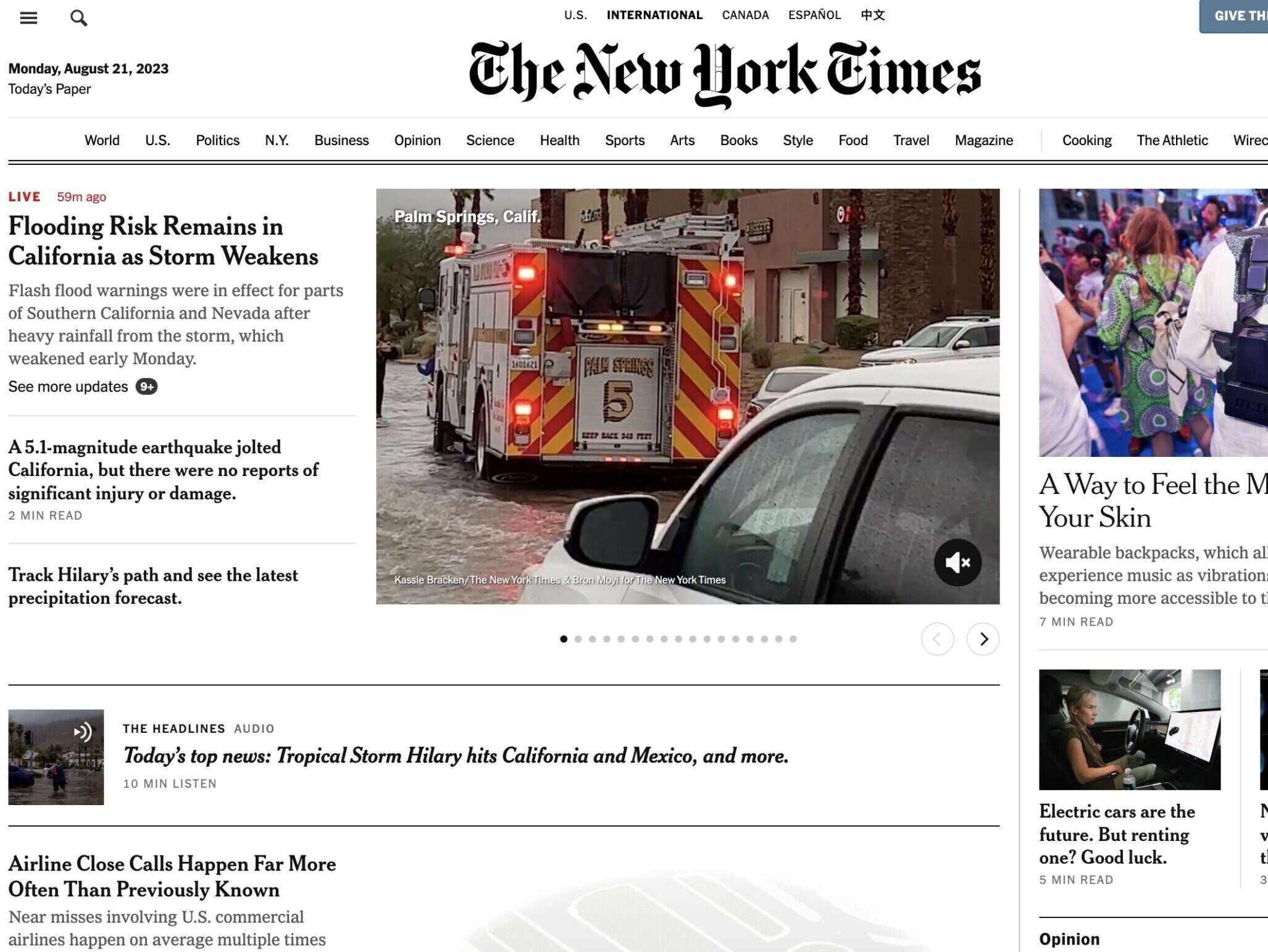The 5-Minute Rule for News Websites
The 5-Minute Rule for News Websites
Blog Article
The Of News Websites
Table of ContentsNews Websites for DummiesNews Websites Fundamentals ExplainedThe 5-Second Trick For News WebsitesThe Best Guide To News WebsitesThe Best Strategy To Use For News Websites
It was down in the UK and Brazil however up some other nations, such as Greece, Bulgaria, and Poland (News Websites). This year, for the very first time, we asked concerning the different manner ins which people avoid the information and discovered that around half of avoiders (53%) were attempting to do so in a broad-brush or regular means for example, by switching off the radio when the news began, or by scrolling past the information in social media sitesYou stated that you attempt to proactively avoid news.

I'm probably picking to learn more light-hearted tales than I used to presently. M, 51, UK Turning my back on news is the only means I feel I can cope occasionally. I need to purposely make the initiative to transform away for my very own psychological health and wellness.
What Does News Websites Mean?
Selective evasion of Ukraine information was greatest in much of the countries closest to the conflict, reinforcing searchings for from our additional study in 2014, quickly after the battle had begun. Our information might not suggest a lack of passion in Ukraine from nearby countries but rather a need to take care of time or shield psychological wellness from the extremely real scaries of battle.
Comparing Finland with a politically polarised country such as the United States (see following graph) that is less affected by the war, we locate an extremely different pattern of topic avoidance. In the USA, we discover that consumers are more most likely to avoid topics such as nationwide politics and social justice, where disputes over issues such as sex, sexuality, and race have ended up being highly politicised.
American national politics are pretty poisonous these days. I find in some cases that I have to separate from stories that simply make me angry. F, 61, USA For some people, bitter and disruptive political discussions are a reason to turn off information altogether, however for some political partisans, avoidance is frequently concerning blocking out perspectives you don't desire to listen to.

What Does News Websites Do?
Some are aiming to make news much more easily accessible for hard-to-reach teams, widening the information schedule, commissioning more inspiring or favorable news, or welcoming constructive or services journalism that provide individuals a sense of hope or personal company. In our study this year, we asked participants discover this concerning their rate of interest in these different strategies.
This explains why tales like Ukraine or national politics do well with news regulars yet can at the exact same time transform much less interested customers away (News Websites). Selective avoiders are less curious about all sorts of news than non-avoiders but in family member terms they do appear to be much more thinking about positive or solutions-based news

Indicators on News Websites You Should Know
2023). This may hold true in the minute, however with time it appears to be leaving lots of people empty and less satisfied, which may be undermining our connection with and count on the news. Across markets, total count on information (40%) and count on the sources people use themselves (46%) are down by a better 2 percent points this year.
Certainly, via the rear-view mirror, the COVID-19 trust fund bump is plainly noticeable in the complying with graph, though the instructions of travel after that has been blended. Sometimes (e.g. Finland), the trust rise has actually been maintained, while in others the upturn looks even more like a blip in a tale of continued long-lasting decline.
Several of the highest reported degrees of media criticism are located in nations with highest degree of suspect, such as Greece, the Philippines, the United States, France, and the United Kingdom. The most affordable levels of media criticism are commonly in those with greater degrees of depend on, such as Finland, Norway, Denmark, and Japan.
The Buzz on News Websites
This year we asked respondents regarding next page their preferences for message, audio and video when consuming news online. Typically, we discover that the bulk still prefer to check out the news (57%), rather than watch (30%) or pay attention to it (13%), however more youthful people (under-35s) are more probable to listen (17%) than older teams.
Behind the standards we discover significant and unexpected nation differences. In markets with a solid reading practice, such as Finland this and the UK, around eight in ten still prefer to check out on-line news, yet in India and Thailand, around four in ten (40%) claim they choose to watch news online, and in the Philippines that percentage mores than fifty percent (52%).
Report this page